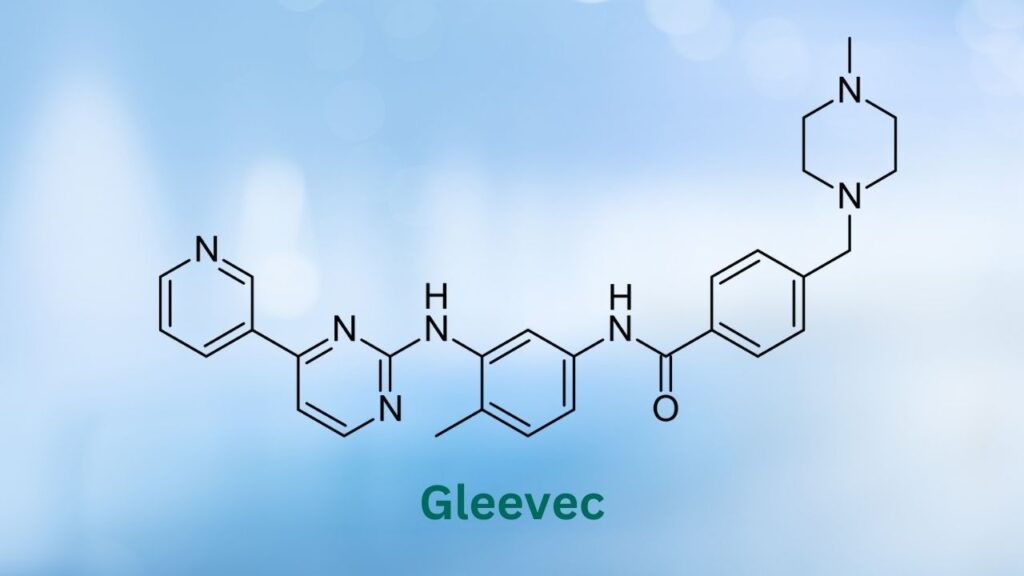Doxycycline is a commonly used antibiotic that shows promise for repurposing as a cancer treatment, particularly in the destruction of cancer stem cells.
Key Takeaways
- Doxycycline is used in dogs to treat tick-borne diseases, respiratory infections, and dental infections. It also shows some potential as a cancer therapy.
- How long it takes doxycycline to work in dogs will depend on what is being treated. Dogs with Lyme disease typically show dramatic improvement within 48 hours of starting doxycycline.
- Many people consider doxycycline a strong antibiotic, but dogs usually tolerate it very well.
- How much doxycycline to give a dog depends on what condition is being treated and the size of the dog.
- Common side effects of doxycycline are vomiting and diarrhea.
What Is Doxycycline for Dogs?
Doxycycline is a commonly used antibiotic in the tetracycline family. It is affectionately referred to as “doxy” by veterinary professionals.
It is usually given orally—as tablets, capsules, or a liquid suspension—but injectable forms are also available.1
You are probably familiar with doxycycline as a treatment for Lyme disease, but it also has a variety of other uses.
Brand Names
Doxycycline is the generic name of this drug. Many brand names are available, including:1
- Vibramycin®
- Alodox®
- Oraxyl®
- Doryx®
- Oracea®
- Monodox®
- Adoxa®
How Doxycycline for Dogs Works
As an antibiotic, doxycycline binds to the 30s ribosomal subunit inside bacteria. This inhibits the bacteria’s ability to make vital proteins, eventually leading to bacterial death.1,2
There are several methods by which doxycycline might be useful to help treat cancer. Let’s go over a few now.
Inhibiting Protein Synthesis
Within both normal and cancer cells, mitochondria are important structures that produce the energy that a cell needs to function.
These mitochondria contain a ribosome that is structurally similar to ribosomes found in bacteria.
Since doxycycline can interfere with the energy ribosomes found in bacteria, it may be able to interfere with the energy production of cancer cells as well, slowing growth and leading to apoptosis (cell death).2-4
Inhibition of Matrix Metalloproteases
Many cancer cells produce compounds called matrix metalloproteases (MMPs). These compounds break down surrounding tissue to help the cancer spread.
Doxycycline may be able to interfere with this process,3,5-8 which could minimize cancer cells’ ability to grow and metastasize (spread).
Interestingly, this property of doxycycline may also prove useful in the management of osteoarthritis in the future.1
Interference with Vascular Endothelial Growth Factor
Many cancer cells produce a compound called vascular endothelial growth factor (VEGF). VEGF allows them to recruit a healthy blood supply to feed the cancer cells.
Doxycycline may be able to interfere with this process which could decrease the nutrients available to cancer cells.5
Targeting Cancer Stem Cells
Doxycycline may be useful in targeting a subpopulation of cancer cells known as cancer stem cells.2,4,9-11
Cancer stem cells are relatively dormant (sleeping) cells within a tumor. This can make them difficult to target with traditional treatments that require active growth and division to be most effective.2,4
These surviving cancer stem cells that evade destruction are often responsible for post-treatment relapses, so doxycycline might be helpful in maintaining remission.3
Synergy
Synergy is when two (or more) things work together to make a greater impact than they would individually. For example, when muscles work together, they are stronger than each would be on its own.
Synergy happens in medicine, too. Doxycycline may also have a potential synergistic effect with other anti-cancer drugs, including chemotherapy agents12-14 and nutritional supplements.15,16
In other words, giving doxycycline might increase the impact of other treatments.
Worry About Resistance
Unfortunately, bacteria can develop resistance to doxycycline, and the same may also be true for cancer cells.15
If cancer cells can develop resistance to doxycycline, they would no longer be vulnerable to treatment. This is something veterinarians might keep in mind in your dog’s case.
Common Uses of Doxycycline for Dogs
As an antibiotic, doxycycline is frequently used in veterinary medicine to treat:1
- respiratory infections
- dental infections
- tick-borne diseases (such as Lyme)
- part of the treatment protocol for heartworm disease
- autoimmune conditions, due to its immunomodulatory properties
Doxycycline is frequently used as an antibiotic in human medicine as well.3,8 it is also used as an anti-inflammatory in some non-infectious skin conditions such as rosacea and acne.7,8
Research into the use of doxycycline in cancer treatment is focused on various cancer types, including breast, ovarian, prostate, pancreatic, lung, melanoma, osteosarcoma, and more.2,4,5,11
Early research suggests that doxycycline may be useful in:
- decreasing the number of cancer stem cells in breast cancer 9,10
- limiting the metastasis of breast and prostate cancers to bone tissue 6
- inducing apoptosis in pancreatic17 and colorectal cancer cells12,18
However, extensive further research is necessary to understand the specifics of how doxycycline can help in the clinical treatment of cancer.
Veterinarians may be comfortable prescribing doxycycline for dogs with cancer because it’s a safe drug they have used for a long time, and it may help, even though we aren’t clear yet on how.
When to Not Use Doxycycline for Dogs
Doxycycline should not be used in:1
- pets that are allergic to the compound
- those who are pregnant
- dogs with significant liver disease, because it is processed by the liver
Doxycycline can also interact with a variety of medications and supplements including:1
- Calcium
- vitamin C
- Iron
- Zinc
- bismuth subsalicylate
- Kaolin
- Omeprazole
- Phenobarbital
- Warfarin
- Ivermectin
- other antibiotics
Always inform your veterinarian of all the medications and supplements your dog is on before adding a new medication so that they can best guide your pet’s overall treatment plan.
How Much Doxycycline to Give a Dog
The dosage for doxycycline can vary quite a bit depending on what it is being used to treat. Doxycycline may also be prescribed as a short course or a long course of a month or more for some stubborn infections. Always follow your veterinarian’s instructions as printed on the label.
Doxycycline is most frequently given by mouth—either as a tablet, a capsule, or a suspension. It should be given with food to help minimize side effects.1 Doxycycline should not be given with dairy products as it inhibits absorption.
You should never “dry pill” doxycycline as it may cause damage to the esophagus.1 Always give a few bites of food or syringe your pet some water after administering to ensure the pill fully reaches the stomach.1
A liquid version may be better for dogs who have difficulty swallowing pills.
What If I Miss a Dose?
If you miss a dose, give the medication as soon as you remember. However, be sure to adjust the timing of the next dose accordingly. If it is almost time for the next dose, just restart the medication at the next scheduled dose.
Storage and Handling
Doxycycline should be stored in light-resistant containers at room temperature.1 Oral liquid suspensions have limited stability once reconstituted and should be discarded 14 days after mixing.1 Refer to the manufacturer’s instructions for further guidance on storage and handling for specific products.
Doxycycline for Dogs Side Effects
Overall, doxycycline has a good safety profile in dogs. The most common side effects are related to the gastrointestinal tract, such as:1
Giving doxycycline with food can help decrease these side effects.1 Remember, avoid giving it with high calcium food such as cheese, as they may inhibit the effectiveness of the drug.
In some cases, doxycycline can cause an elevation of liver enzymes (ALT and ALP) in dogs. This is not always clinically significant but does reflect stress on the liver, and if an alternative drug treatment is available, it may be warranted.
- Plumb DC. Doxycycline. Plumb’s Veterinary Drugs. https://app.plumbs.com/drug-monograph/cqWG1Kqvh9PROD?source=search&searchQuery=doxyc Updated June 2022.
- Dijk SN, Protasoni M, Elpidorou M, Kroon AM, Taanman JW. Mitochondria as target to inhibit proliferation and induce apoptosis of cancer cells: the effects of doxycycline and gemcitabine. Sci Rep. 2020;10(1):4363. Published 2020 Mar 9. doi:10.1038/s41598-020-61381-9
- Markowska A, Kaysiewicz J, Markowska J, Huczyński A. Doxycycline, salinomycin, monensin and ivermectin repositioned as cancer drugs. Bioorg Med Chem Lett. 2019;29(13):1549-1554. doi:10.1016/j.bmcl.2019.04.045
- Skoda J, Borankova K, Jansson PJ, Huang ML, Veselska R, Richardson DR. Pharmacological targeting of mitochondria in cancer stem cells: An ancient organelle at the crossroad of novel anti-cancer therapies. Pharmacol Res. 2019;139:298-313. doi:10.1016/j.phrs.2018.11.020
- Hadjimichael AC, Foukas AF, Savvidou OD, Mavrogenis AF, Psyrri AK, Papagelopoulos PJ. The anti-neoplastic effect of doxycycline in osteosarcoma as a metalloproteinase (MMP) inhibitor: a systematic review. Clin Sarcoma Res. 2020;10:7. Published 2020 Apr 30. doi:10.1186/s13569-020-00128-6.
- Saikali Z, Singh G. Doxycycline and other tetracyclines in the treatment of bone metastasis. Anticancer Drugs. 2003;14(10):773-778. doi:10.1097/00001813-200311000-00001
- Perret LJ, Tait CP. Non-antibiotic properties of tetracyclines and their clinical application in dermatology. Australas J Dermatol. 2014;55(2):111-118. doi:10.1111/ajd.12075
- Henehan M, Montuno M, De Benedetto A. Doxycycline as an anti-inflammatory agent: updates in dermatology. J Eur Acad Dermatol Venereol. 2017;31(11):1800-1808. doi:10.1111/jdv.14345
- Zhang L, Xu L, Zhang F, Vlashi E. Doxycycline inhibits the cancer stem cell phenotype and epithelial-to-mesenchymal transition in breast cancer. Cell Cycle. 2017;16(8):737-745. doi:10.1080/15384101.2016.1241929
- Scatena C, Roncella M, Di Paolo A, et al. Doxycycline, an Inhibitor of Mitochondrial Biogenesis, Effectively Reduces Cancer Stem Cells (CSCs) in Early Breast Cancer Patients: A Clinical Pilot Study. Front Oncol. 2018;8:452. Published 2018 Oct 12. doi:10.3389/fonc.2018.00452
- Lamb R, Ozsvari B, Lisanti CL, et al. Antibiotics that target mitochondria effectively eradicate cancer stem cells, across multiple tumor types: treating cancer like an infectious disease. Oncotarget. 2015;6(7):4569-4584. doi:10.18632/oncotarget.3174
- Onoda T, Ono T, Dhar DK, Yamanoi A, Fujii T, Nagasue N. Doxycycline inhibits cell proliferation and invasive potential: combination therapy with cyclooxygenase-2 inhibitor in human colorectal cancer cells. J Lab Clin Med. 2004;143(4):207-216. doi:10.1016/j.lab.2003.12.012
- 13. Zhu C, Yan X, Yu A, Wang Y. Doxycycline synergizes with doxorubicin to inhibit the proliferation of castration-resistant prostate cancer cells. Acta Biochim Biophys Sin (Shanghai). 2017;49(11):999-1007. doi:10.1093/abbs/gmx097
- Yi YW, Park NY, Park JI, Seong YS, Hong YB. Doxycycline potentiates the anti-proliferation effects of gemcitabine in pancreatic cancer cells. Am J Cancer Res. 2021;11(7):3515-3536. Published 2021 Jul 15.
- De Francesco EM, Bonuccelli G, Maggiolini M, Sotgia F, Lisanti MP. Vitamin C and Doxycycline: A synthetic lethal combination therapy targeting metabolic flexibility in cancer stem cells (CSCs). Oncotarget. 2017;8(40):67269-67286. Published 2017 Jun 9. doi:10.18632/oncotarget.18428
- Fiorillo M, Tóth F, Sotgia F, Lisanti MP. Doxycycline, Azithromycin and Vitamin C (DAV): A potent combination therapy for targeting mitochondria and eradicating cancer stem cells (CSCs). Aging (Albany NY). 2019;11(8):2202-2216. doi:10.18632/aging.101905
- Son K, Fujioka S, Iida T, et al. Doxycycline induces apoptosis in PANC-1 pancreatic cancer cells. Anticancer Res. 2009;29(10):3995-4003.
- 18. Ghasemi K, Ghasemi K. A Brief look at antitumor effects of doxycycline in the treatment of colorectal cancer and combination therapies. Eur J Pharmacol. 2022;916:174593. doi:10.1016/j.ejphar.2021.174593
Vibramycin® is a registered trademark of Pfizer
Alodox® is a registered trademark of OCuSOFT, Inc.
Oraxyl® is a registered trademark of E5 Pharma, Inc.
Doryx® is a registered trademark of Aqua Pharmaceuticals, LLC.
Oracea® is a registered trademark of CollaGenex Pharmaceuticals, Inc.
Monodox® is a registered trademark of Aqua Pharmaceuticals
Adoxa® is a registered trademark of PharmDerm
Topics
Did You Find This Helpful? Share It with Your Pack!
Use the buttons to share what you learned on social media, download a PDF, print this out, or email it to your veterinarian.









